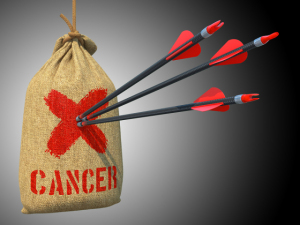by
Thomas Dworetzky, Contributing Reporter | September 09, 2015
If you have cancer, or if your physician thinks you do, you get a scan pretty quickly, right? Schedule it, get it done, have it interpreted, and go from there...
Not if you're in the U.K., according to Cancer Research UK, and a pair of new reports prepared for the charity about imaging and endoscopy capacity, produced by the agency 2020 Delivery, and the University of Birmingham.
"I know from having friends and relatives with cancer that when the time comes to have a scan, their life goes on hold until the result arrives. Will it mean more treatment? Or different treatment? Or are they now beyond treatment at all? So the fact that some patients are waiting a month or longer to find this out is frankly shocking," according to the college's president, Dr. Giles Maskell, commenting on the latest findings.




Ad Statistics
Times Displayed: 44363
Times Visited: 1371 Keep biomedical devices ready to go, so care teams can be ready to care for patients. GE HealthCare’s ReadySee™ helps overcome frustrations due to lack of network and device visibility, manual troubleshooting, and downtime.
According to the charity, "the NHS services for diagnosing cancer are underfunded, understaffed, and key waiting time targets are being missed."
Cancer Research U.K. is now calling for an increase in funding for diagnostic services. Sara Hiom, its director for early diagnosis, said, “the state of NHS diagnostic services is deeply concerning.” She noted, "There aren’t enough trained staff, they’re often reliant on outdated equipment and in many cases they’re already operating services seven days a week.
“GPs do not have the access they need, and that means patients are waiting too long for tests,”
Hiom told The Independent. “This has to change if doctors are to diagnose more people with cancer earlier.”
In its evaluation of imaging capacity across the NHS in England, the report from 2020 Delivery found that, "the '62-day wait' target, which states that 85 percent of cancer patients should receive treatment with 62 days of being urgently referred for suspected cancer by their GP, has now been breached for six consecutive quarters."
These findings bring a harsh light on the pressure for services that are overwhelming NHS capacity. This comes at a time, according to its findings, when imaging activity has shown a 6 percent annual growth rate for ten years, and the predicted demand for MR and CT is set to grow 9 percent yearly — or more.
In the imaging report, the price tag to update and replace outdated CT scanners, MR, and ultrasound machines, among other related equipment, was estimated to be about $330 million. And that would just upgrade present capacity. It doesn't include the need for more capacity as demand increases from present levels.
The endoscopy report from the University of Birmingham predicted that "more than 750,000 extra endoscopies will need to be performed each year in the U.K. by 2020 – around a 44 percent rise from today’s levels."
“The concerns highlighted in these reports aren’t just limited to cancer patients – they apply to everyone who uses these services and also include patients being monitored for any changes in their condition. We need a commitment to greater investment in these services to meet the demand and increase survival,” concluded Maskell.

